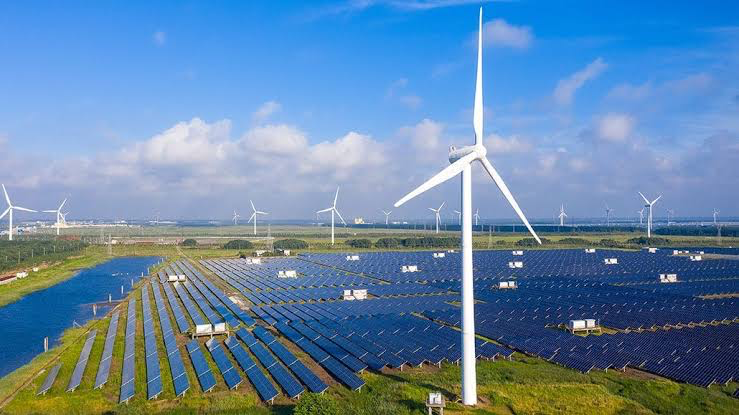Cameroon is set to develop 4GW of renewable energy across various technologies by 2035. This ambitious plan follows a Memorandum of Understanding (MoU) signed between a renewable energy provider and the Cameroon West Regional Council.
The projects will be developed in phases, incorporating solar, battery storage, wind, hydropower, and biomass plants. These initiatives aim to generate clean, renewable energy for domestic use, addressing the country’s critical power needs.
Nayer Fouad, CEO of Infinity Power, stated, “This facility, using wind and solar power, has the potential to transform energy provision in the area, bolster Cameroon’s economy, and deliver huge benefits to local communities.”
Dr. Vincent Kitio, Lead of Urban Energy Solutions at UN-Habitat, highlighted the region’s renewable energy potential, exceeding 6GW. Currently, the Western Region receives only 100MW from the national grid for over 2 million people, leading to a significant energy deficit. The new energy projects aim to impact more than 5 million Cameroonians positively.
Cameroon had a 65.45% electricity access rate in 2021. Renewable energy can help close the energy access gap, meet rising energy demand, and mitigate climate change.
Cameroon plans to double the capacity of its two solar parks, addressing a 27% increase in electricity consumption per capita over the last two decades. The country’s energy demands are primarily met by gas and hydropower. The new renewable energy projects will provide clean power and contribute to economic and social development in a nation struggling with poverty.
“The region experiences daily power rationing, hindering social and economic development,” said Dr. Jules Hilaire Focka Focka, President of the Cameroon West Regional Council. “Transforming our vast human and natural resources could bring much-needed development to the region.”
The MoU was signed by Infinity Power Deputy CEO Ahmed Mulla and Dr. Focka. UN-Habitat will play a crucial role in project development, providing technical assistance, participating in feasibility studies, developing a governance system for energy generation and distribution, and ensuring communities benefit from the generated energy.
UN-Habitat will ensure that new settlements near power plants are well-planned and receive adequate urban basic services. The organization will also ensure efficient and effective use of the energy generated.
“This partnership with the Cameroon West Regional Council and UN-Habitat is a significant step towards addressing Cameroon’s energy needs through sustainable and renewable solutions,” Mulla stated.
The renewable energy initiatives will significantly impact Cameroon’s energy landscape. By harnessing the region’s abundant renewable resources, the projects aim to provide reliable, clean energy, reduce the energy deficit, and promote sustainable development.
The development of 4GW of renewable energy will position Cameroon as a leader in renewable energy in Africa. The project aims to address the energy needs of millions, reduce dependence on fossil fuels, and support the country’s economic growth.
Cameroon’s commitment to renewable energy is a step towards a sustainable future. The successful implementation of these projects will serve as a model for other nations in the region. The collaboration with international organizations like UN-Habitat ensures that the projects will benefit local communities and promote inclusive development.
The upcoming renewable energy projects in Cameroon are not just about energy production. They are about transforming lives, boosting the economy, and setting the country on a path to sustainable growth. By investing in renewable energy, Cameroon is investing in its future.
Source: ESI Africa



